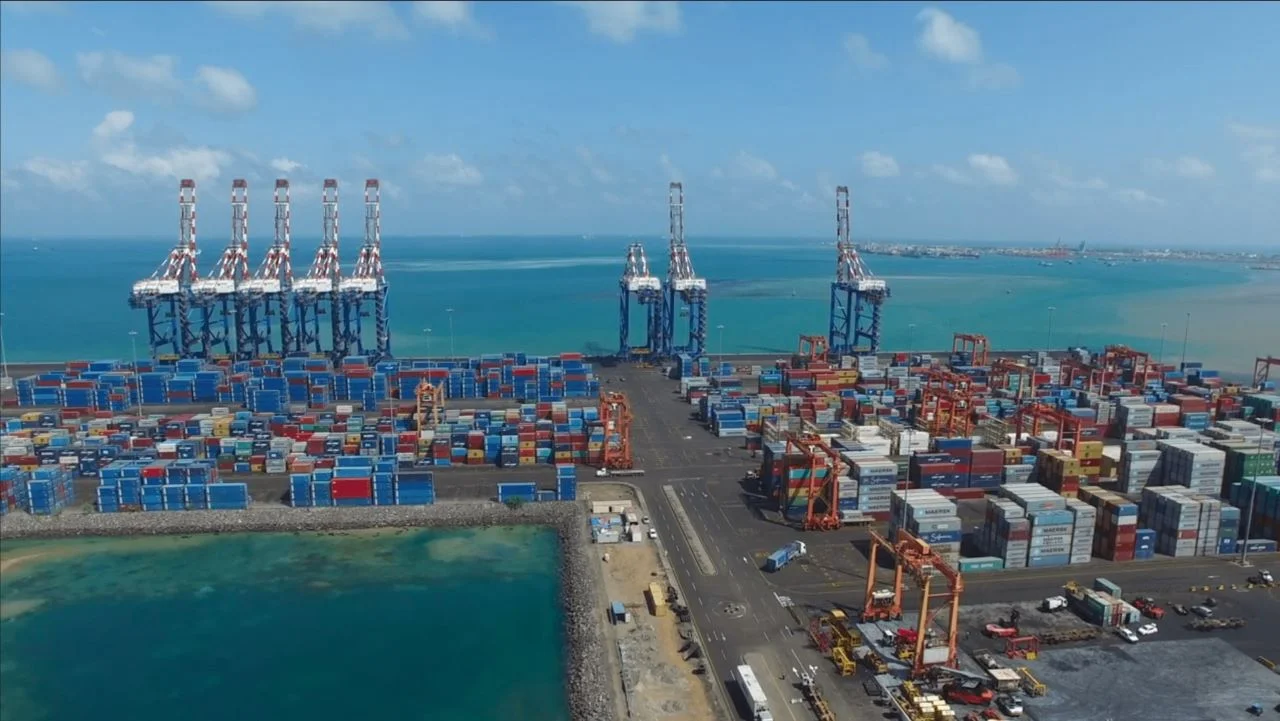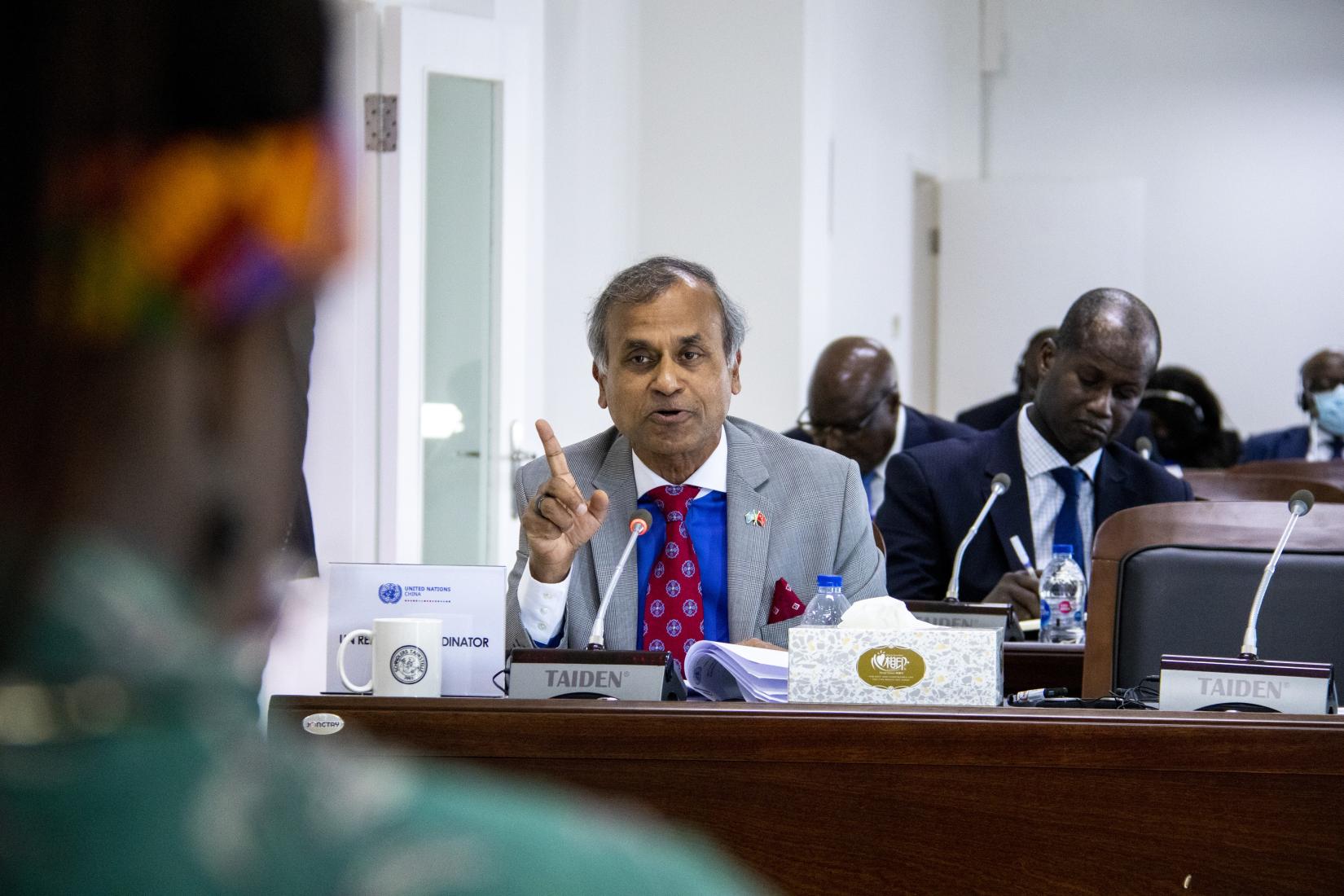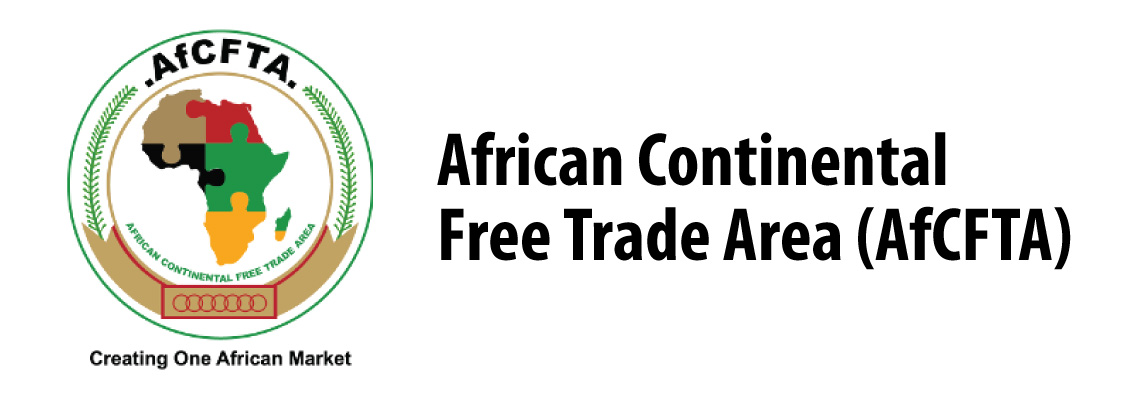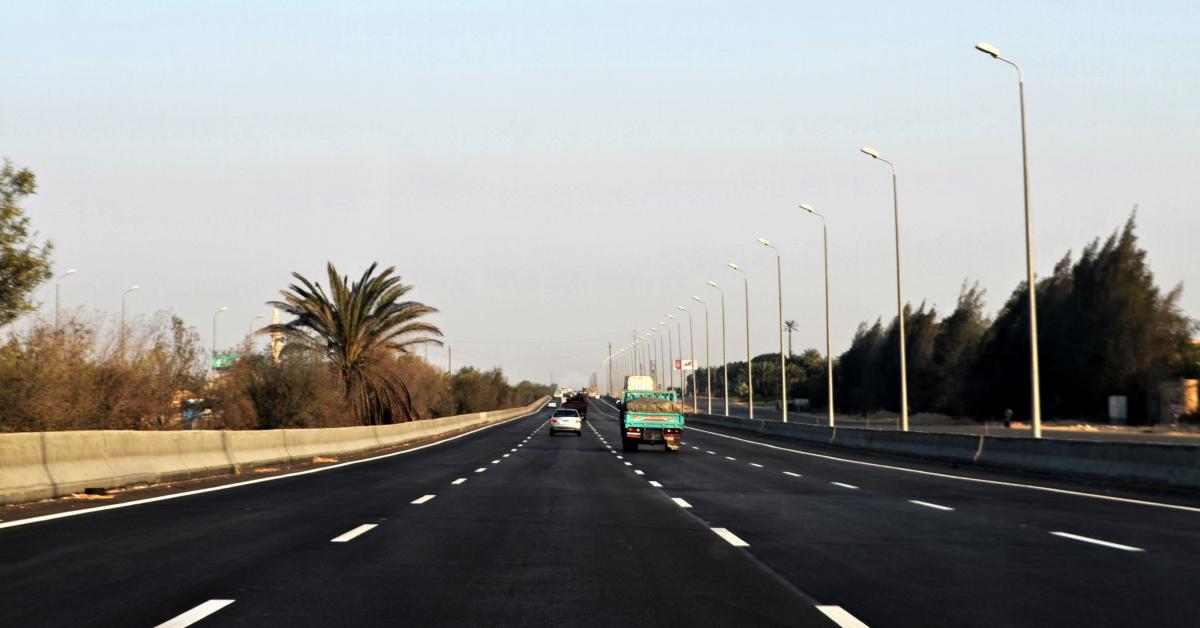The Best Infrastructure In Africa - A Continent On The Rise
Africa, a continent known for its rich cultural diversity, abundant natural resources, and untapped potential, is also making significant strides in infrastructure development. In recent years, various nations have been investing heavily in building robust infrastructure in Africato support their economic growth and improve the quality of life for their citizens. In this article, we will explore some of the best infrastructure developments across the continent.
Infrastructure In Africa - A Catalyst For Growth
Investments in infrastructure are the cornerstone of Africa's development. These ambitious projects span across various sectors, including transportation, energy, telecommunications, and healthcare. Adequate infrastructure isn't just a matter of convenience; it's a catalyst for economic growth, attracting foreign investments, promoting regional integration, and reducing poverty across the continent.
Transportation
Railways: The electrified railway line that connects Ethiopia's capital, Addis Ababa, to the port of Djibouti exemplifies Africa's growing railway network. This transformative project has significantly reduced transportation costs and revolutionized trade in the region. It serves as a prime example of how railways can enhance connectivity and drive economic development.
Ports: The Port of Durban, located in South Africa, stands out as one of Africa's busiest and most advanced ports. Serving as a major gateway to international trade, it plays a pivotal role in supporting the Southern African region's economic activities. Its efficient operations and strategic location have made it a vital component of global commerce.
Airports: Ethiopia's Bole International Airport and South Africa's O.R. Tambo International Airport are renowned aviation hubs that exemplify Africa's commitment to enhancing connectivity. These world-class airports serve as vital gateways not only within Africa but also to the rest of the world. Their modern infrastructure, advanced technology, and impeccable services contribute significantly to the continent's accessibility and global integration.
Energy Infrastructure
Renewable Energy: Morocco's Noor Solar Power Complex represents a shining example of Africa's commitment to harnessing renewable energy sources. As one of the world's largest concentrated solar power plants, it capitalizes on the region's abundant sunlight to generate clean energy. This not only reduces the carbon footprint but also provides a sustainable energy source for the nation and neighboring regions.
Hydropower: The Grand Ethiopian Renaissance Dam (GERD) on the Blue Nile River is poised to become Africa's largest hydropower project. Beyond its impressive scale, GERD is a symbol of Africa's ambitions to secure energy independence and provide electricity to millions of people in the region. It promises to be a game-changer for both Ethiopia and neighboring countries, driving economic growth and improving living standards.
Telecommunications
Fiber Optic Networks: Undersea fiber optic cables, such as the West Africa Cable System (WACS), have revolutionized internet connectivity and communication throughout West Africa. These high-speed networks have not only connected urban centers but have also bridged the digital divide, enabling rural communities to access online services, education, and economic opportunities.
Mobile Networks: Nigeria's rapid expansion of its mobile network coverage is reshaping how its citizens access information and services. Mobile technology has become a powerful tool for financial inclusion, education, and healthcare, driving progress across various sectors of the economy.
Healthcare Infrastructure
Specialized Hospitals: South Africa's Netcare Waterfall CityHospital and Kenya's Aga Khan University Hospital are shining examples of world-class healthcare facilities on the continent. These state-of-the-art institutions attract medical tourists from around the globe, offering advanced medical care and expertise. They play a crucial role in promoting medical tourism, contributing to the economy while providing top-notch healthcare.
Medical Research Centers: The Institute of Human Virology in Nigeria and the African Institute for Mathematical Sciences in Rwanda serve as hubs for cutting-edge medical research and education. These institutions not only advance medical knowledge but also contribute to the development of healthcare solutions tailored to Africa's unique challenges, including infectious diseases and public health issues.
The Role Of Foreign Investments In Africa's Infrastructure Development
Africa's ambitious infrastructure projects have been greatly facilitated by foreign investments, making them a critical driver of the continent's development. Countries such as China have played a pivotal role in financing and constructing major infrastructure projects across Africa. This foreign investment influx has not only enhanced Africa's connectivity but has also brought about numerous other benefits, including job creation and economic growth.
Financing Large-Scale Projects
Foreign investments have been instrumental in addressing Africa's immense infrastructure financing needs. Many African nations face budgetary constraints and limited access to international capital markets. Foreign investments, often in the form of loans and grants, bridge this financial gap, allowing governments to embark on large-scale infrastructure developments that would otherwise be unaffordable.
China, in particular, has been a key player in providing financial support through initiatives like the Belt and Road Initiative (BRI). The BRI has enabled African countries to access funding for critical infrastructure projects, ranging from railways and ports to energy facilities and telecommunications networks.
Expertise And Technology Transfer
Foreign investments bring not only financial resources but also expertise and technology. Collaborative infrastructure projects involve knowledge transfer, which helps build local capacity and know-how. This, in turn, empowers African nations to plan, implement, and manage infrastructure projects independently in the long run.
Chinese involvement in Africa's infrastructure development has included the transfer of construction technology, engineering expertise, and project management skills. This knowledge sharing contributes to skills development and strengthens the capabilities of local workforces.
Job Creation And Economic Growth
Infrastructure projects funded by foreign investments generate a significant number of jobs, both directly and indirectly. Construction workers, engineers, project managers, and support staff are employed during the implementation phase. Additionally, infrastructure development stimulates economic growth by improving logistics, reducing transportation costs, and attracting new businesses and investments.
For instance, the construction of a modern port or railway system not only creates employment opportunities in the short term but also fosters trade, boosts industries, and enhances overall economic productivity. This economic growth has a ripple effect on various sectors, further improving the quality of life for citizens.
Enhanced Regional Integration
Foreign investments in cross-border infrastructure projects promote regional integration. The development of efficient transportation networks, such as transnational railways and highways, facilitates the movement of goods and people between neighboring countries. This, in turn, fosters economic cooperation and strengthens political ties, reducing trade barriers and promoting stability in the region.
African Union's Program for Infrastructure Development in Africa(PIDA) is an example of how foreign investments can support regional integration. PIDA seeks to improve infrastructure connectivity across the continent, enhancing trade and socio-economic development.
Sustainable Development
Foreign investments are increasingly aligned with sustainability goals. In response to global concerns about climate change and environmental preservation, investors are supporting eco-friendly infrastructure projects in Africa. This includes funding for renewable energy initiatives, green transportation solutions, and environmentally conscious building practices. These sustainable projects not only reduce Africa's carbon footprint but also position the continent as a leader in green infrastructure.
Challenges And Opportunities In Africa's Infrastructure Development
While Africa's infrastructure development journey is marked by remarkable progress, it is not without its fair share of challenges. However, these challenges also present opportunities for innovation, collaboration, and sustainable growth. Here, we delve into the obstacles and the promising prospects that lie ahead.
Challenges In Africa's Infrastructure Development
Financing Hurdles
One of the foremost challenges is securing adequate financing for infrastructure projects. Many African nations grapple with limited domestic resources and face constraints when accessing international capital markets. While foreign investments have been pivotal, managing the debt associated with these investments is a delicate balancing act.
Political Stability
Political stability is essential for long-term infrastructure planning and execution. Some African countries have experienced political instability and governance issues, which can disrupt projects, deter investors, and erode public trust.
Maintenance And Sustainability
The maintenance of existing infrastructure is often neglected, leading to degradation and inefficiency over time. Sustainable development practices must be integrated into infrastructure planning to ensure longevity and minimize environmental impacts.
Inequality And Access
Infrastructure development should be inclusive, reaching all segments of the population. Rural and underserved areas often lag behind urban centers in terms of access to infrastructure, exacerbating inequality.
Opportunities In Africa's Infrastructure Development
Innovative Financing Mechanisms
In response to financing challenges, African nations are exploring innovative financing mechanisms. These include sovereign wealth funds, infrastructure investment trusts, and green bonds. Such instruments diversify funding sources and reduce reliance on traditional debt financing.
Increased Intra-African Collaboration
Collaboration among African nations is gaining momentum. Regional blocs like the African Union are facilitating joint infrastructure projects, leading to cost-sharing, shared expertise, and improved regional integration. Initiatives like the African Continental Free Trade Area (AfCFTA) further underscore the importance of collaborative infrastructure development.
Sustainable Development Focus
Africa is increasingly embracing sustainable development principles. Green infrastructure projects, renewable energy initiatives, and eco-friendly building practices are becoming the norm. These approaches reduce the environmental footprint while attracting environmentally conscious investors and partners.
Technology And Innovation
The digital revolution offers opportunities for leapfrogging traditional infrastructure development models. Technologies such as 3D printing, artificial intelligence, and blockchain can streamline construction processes, enhance project management, and improve infrastructure efficiency.
Public-Private Partnerships (PPPs)
PPPs continue to be a valuable tool for infrastructure development. By partnering with the private sector, African governments can leverage private investments, technical expertise, and efficient project management. Well-structured PPPs can address financing challenges and enhance project delivery.
Human Capital Development
Investing in education and skill development is critical for addressing the skills gap in infrastructure development. Local capacity building not only empowers the workforce but also ensures the sustainability of infrastructure projects.
International Support
International organizations and donor agencies continue to provide support for Africa's infrastructure development efforts. These partnerships bring financial assistance, technical expertise, and best practices to the table, bolstering the continent's capacity to overcome challenges.
Regional Integration And Connectivity
Efforts to enhance regional integration through infrastructure development are gaining significant momentum across Africa. Initiatives like the African Union's Program for Infrastructure Development in Africa (PIDA) are playing a pivotal role in fostering cross-border cooperation and facilitating the seamless movement of goods and people throughout the continent. These visionary projects aim to break down trade barriers, strengthen economic collaboration, and position Africa as a formidable global player in the 21st century.
The Role Of PIDA
The African Union's PIDA is a flagship program that embodies the spirit of continental cooperation. It focuses on developing a robust and interconnected infrastructure network that spans transportation, energy, and telecommunications, with the ultimate goal of creating a more integrated and prosperous Africa.
Transportation Infrastructure
PIDA prioritizes the creation of an extensive and efficient transportation network that links African nations. This includes the development of transnational highways, railways, and ports that facilitate the movement of goods and people. For example, projects like the Trans-African Highway Network and the African Integrated High-Speed Railway Network are transforming the way people and products traverse the continent.
Energy
The program recognizes the critical role of energy in Africa's development. PIDA supports the construction of energy infrastructure, such as power generation facilities, transmission lines, and regional power pools. These projects enhance access to electricity, foster energy trade among nations, and promote energy security.
Telecommunications Infrastructure
PIDA acknowledges the significance of digital connectivity in the modern age. The development of undersea fiber optic cables, like the West Africa Cable System (WACS), has been a vital component of the program. These high-speed data links have revolutionized communication across the continent, enabling more efficient business operations and improved access to information.
Public-Private Partnerships (PPPs) Fuel Growth
One of the keys to PIDA's success lies in its strategic use of Public-Private Partnerships (PPPs). These collaborations between governments and private enterprises are essential in driving infrastructure growth in Africa. PPPspool government resources and private sector expertise, making it possible to undertake large-scale projects that might otherwise be financially unfeasible.
PPP Success Stories
A shining example of PPP success can be found in Kenya's infrastructure development. The nation has embraced PPPs in projects like the construction of roads, bridges, and even skyscrapers. This approach has attracted significant investments and accelerated infrastructure growth.
For instance, Kenya boasts several impressive skyscrapers, as highlighted in theTop 10 Tallest Buildings in Kenya. These architectural marvels not only transform city skylines but also signify the nation's commitment to modernization and economic development.
People Also Ask
Which City Has Best Infrastructure In Africa?
Johannesburg, South Africa, is often considered one of the cities with the best overall infrastructure in Africa. It boasts well-developed transportation networks, modern airports, a significant financial sector, and a range of amenities. However, other cities like Nairobi, Kenya, and Addis Ababa, Ethiopia, have also made significant strides in recent years.
What Is The Most Advanced Area In Africa?
When it comes to advanced areas in Africa, it's important to consider different aspects. In terms of technological advancements, some areas in South Africa, such as Johannesburg and Cape Town, stand out. These cities have well-developed tech industries and digital infrastructure. For economic development, regions like Lagos, Nigeria, and Nairobi, Kenya, are known for their thriving business sectors and innovation hubs.
Which Country Has The Best Infrastructure?
Again, evaluating the "best" infrastructure across an entire country can be complex. South Africa is often recognized for having one of the most developed infrastructures on the continent, including transportation, energy, and healthcare facilities. However, other countries like Kenya, Egypt, and Nigeria have also made significant investments in infrastructure development in recent years and have areas of excellence in various sectors.
Conclusion
Africa's infrastructure landscape is evolving rapidly, with impressive projects across various sectors transforming the continent's economic and social prospects. As the continent continues to invest in its infrastructure, it will become increasingly attractive to investors and open up new opportunities for its people. The best is yet to come for infrastructure in Africa, as it plays a pivotal role in the continent's journey towards sustainable development and prosperity.




